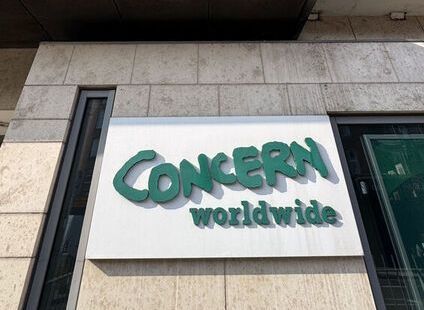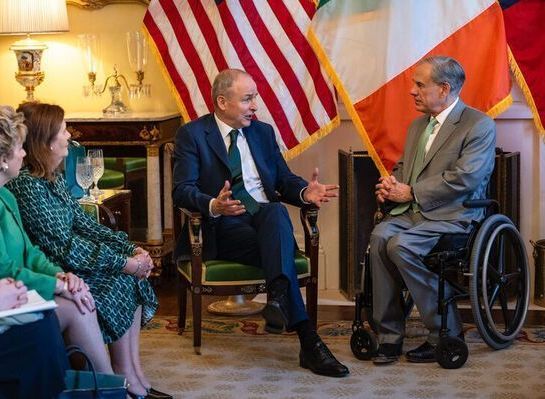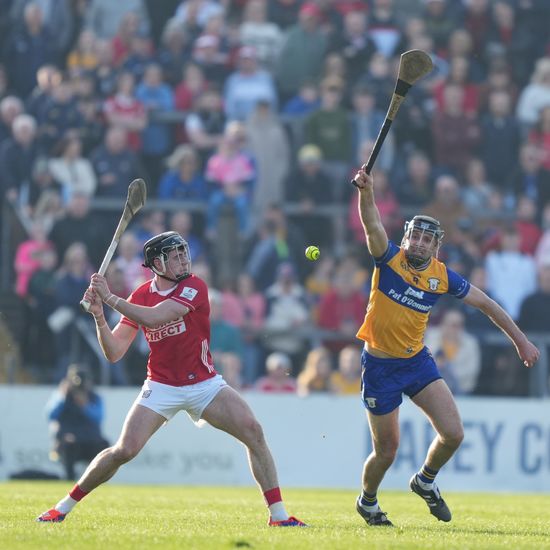[caption id="attachment_67245" align="aligncenter" width="600" caption="Ronnie Whelan pictured outside the gates at Anfield in 1989."]
There is a chapter in Ronnie Whelan's new autobiography that is rather appropriately titled "Assassins." In this section of the book, the former Liverpool great takes the reader behind the veil and offers us a glimpse into just how violent and physical soccer was back in his eighties heyday. He recalls an unforgiving culture where you did unto others as they did unto you, an environment in which players policed themselves and anybody who dished out the rough stuff expected to receive retribution of a similar kind from opponents.
Like the rest of the book, it's all marvelously refreshing and candid, and one more timely reminder of how different the game used to be. Anybody who remembers the 1980s will testify that soccer players then were less athletic, more skillful and a lot more willing to make and take bad tackles. When it comes to explaining just how the Liverpool team on which he played dominated the English game, Whelan doesn't hold back from explaining the attitude they had towards the physical contest in every game.
"Liverpool were a big scalp in those days," writes Whelan. "There was always somebody looking to have a go. Teams took great pleasure in beating us and individual players took great pleasure in dishing out the dirty tackles. They seemed to think that any Liverpool player was fair game if the chance came along. We had our own system for dealing with this. Macca (Steve McMahon) and myself had an understanding that if one of us had already been booked, and was looking to have a go back at someone, the other one would do it on his behalf."
Tottenham Hotspur fans of a certain age will bristle when they come to Whelan's account of how Liverpool's midfield effectively bullied a talented Spurs' midfield (Tony Galvin was unceremoniously done by Graeme Souness in the most spectacular instance) out of the 1982 League Cup final. While younger readers will be shocked to discover that competition was taken a bit more seriously back then, there is plenty more here to educate youngsters who think the game began with the arrival of the Premier League.
Indeed, to run your finger along this book is to take a trip through your own childhood, back when Liverpool were what Manchester United would become. Many of the pages evoke wonderful memories of great games and fantastic characters from a distant age before every match had to be viewed through the prism of Sky Sports hype. We can recall minutiae of some of those big encounters because they were so rarely shown live that we cherished every one.
Whelan's vivid account of difficult trips behind the Iron Curtain in Europe brought to mind Saturday afternoon's watching highlights of European Cup matches on RTE's late-lamented "Sports Stadium". Try to explain how much we loved those televised rations to a kid raised on a steady diet of Champions' League over-eating.
This is much more than a saunter down memory lane however as Whelan approaches his task with commendable honesty. While his evisceration of Graeme Souness the manager has already made headlines, he doesn't spare himself either. Few former footballers (a breed known for the size of their egos) would have the sense of perspective to address their own shortcomings as he does. For somebody who, before Roy Keane and Denis Irwin rewrote the record book, was Ireland's most decorated club player, Whelan accepts that many felt he underachieved after a debut season with Liverpool wherein he promised to become one of the greats of all time.
"Sometimes, if I'm really questioning myself about my career, I'll think: 'Yeah, maybe I could have been a bit more ambitious. Maybe I could have expressed myself a bit more. Maybe I could've got forward more, maybe I could've got on the ball more instead of passing it all the time.' But then you ask yourself: 'How much more?' You can't go back through every game and wonder if you should've carried this ball or that ball rather than laying it off to [John] Barnes; or if you should've taken a chance on joining an attack, knowing you were leaving a big gap in midfield. It's ifs and buts and maybes. The bottom line was the team. We all had to serve the team."
He brings a similar rigor to analyzing his international career, more or less admitting that it wasn't all it should have been, at least in part due to the fact his club commitments over-rode all else. If that memorable goal against the Soviet Union in Euro 88 is everybody's memory of Whelan in green, there's also the famous night he played left-back against Scotland in the qualifying for that tournament. When Whelan lists the team for that fixture it's a graphic illustration of how far Ireland's stock has fallen in recent seasons. Imagine a starting XI of Packie Bonner, Paul McGrath, Kevin Moran, Whelan, Ray Houghton, Mark Lawrenson, Liam Brady, Tony Galvin, Frank Stapleton and John Aldridge.
From being groomed for greatness at Home Farm to witnessing the horrors of Hillsborough and Heysel, Whelan has led an interesting and varied sporting life, experiencing triumph and (very, very real) tragedy in equal measure. Having endured those sort of vicissitudes, it was perhaps inevitable that his autobiography would be a cut above the standard-issue format of retired player cashing in on what's left of his fading celebrity.
This then is an excellent addition to any sports library, offering fathers the opportunity to relive their youths and providing them with a chance to give their sons a book that may educate them on the greatness of the game before Sky. Picture how shocked the kids will be when they discover that before he turned into an over-excited talking head on the telly, Phil Thompson was captain of the greatest team in England, taking a younger Dubliner under his wing at Anfield.
"Walk On: My Life in Red" by Ronnie Whelan is published by Simon and Schuster and available from all online retailers.









